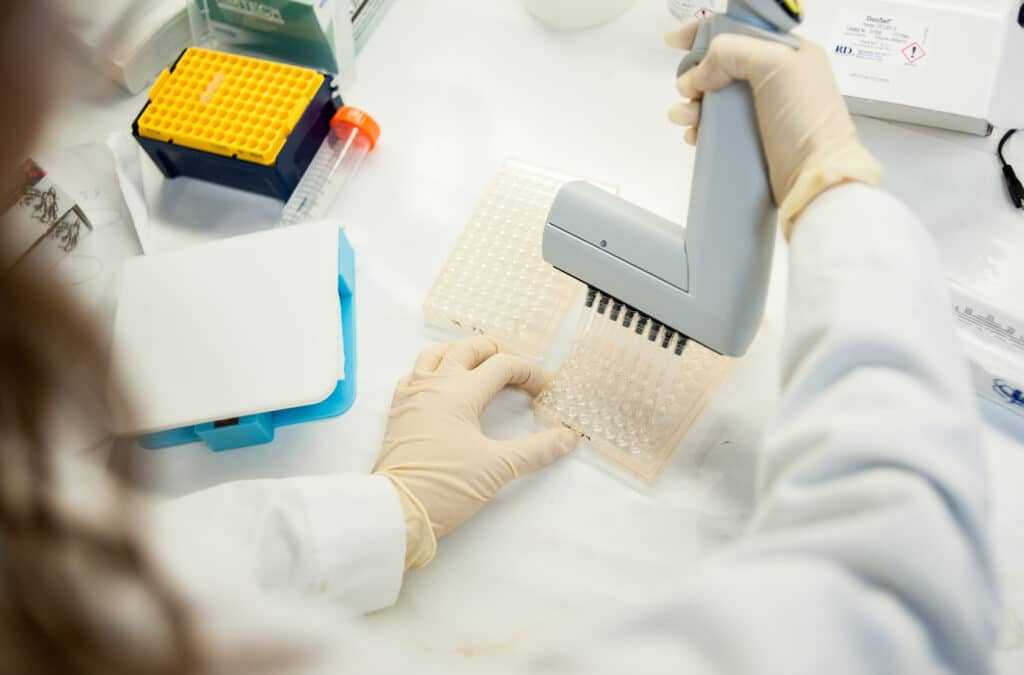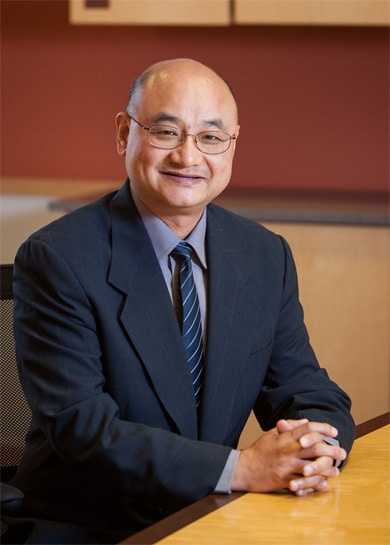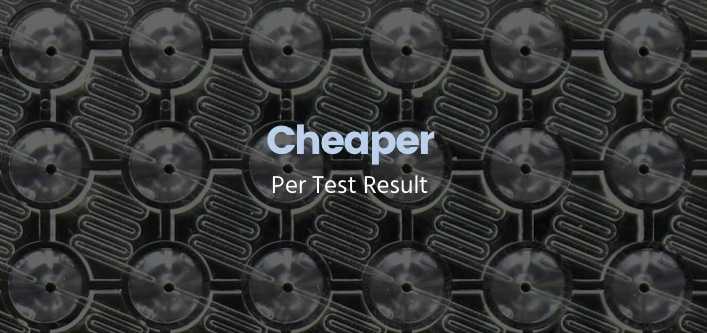A Cheaper, Faster, More Reliable Coronavirus Antibody Test?
A microfluidic device invented at the University of Michigan and developed by U of M startup Optofluidic Bioassay may offer a cheaper, faster, and much more reliable antibody test than those currently being rushed to market to trace the spread of COVID-19. A microfluidic device is described by the company as a "lab on a chip," meaning that it shrinks multiple lab testing functions onto a single chip just millimeters or centimeters in size. The technology enables faster results for coronavirus antibody testing with smaller sample sizes.
According to a press release sent out by the University of Michigan, "the new system is believed to be the first microfluidic approach to a gold standard testing protocol known as 'enzyme-linked immunosorbent assay,' or ELISA. The U of M researchers have previously published results showing that their device can work as well as the slower, larger, standard ELISA setup. They are currently validating it for use on COVID-19 antibodies. They have demonstrated that they can detect synthetic COVID-19 antibodies, and they're working with researchers at a hospital in New Jersey on experiments with human blood from COVID-19 patients."
Hardware-Based COVID-19 Antibody Testing Is More Portable, with Detailed Results
The Optofluidic Bioassay approach centers on a device, rather than the chemical mixtures, or reagents, to detect COVID-19 markers. "We are unique because we are a hardware company," says Xudong, or Sherman, Fan, University of Michigan biomedical engineering professor and co-founder of Optofluidic Bioassay. "Anyone working on COVID-19 antibody tests can use their reagents in our device."
Fan says that the majority of labs working on serology kits are making a particular type called "rapid diagnostic tests" that give a yes or no reading. These are quick, but false positives can be a problem and they don't give a lot of information, so they aren't useful in monitoring the immune system's response during treatment. A handful of labs are making ELISA tests. These are typically accurate, showing the concentration of antibodies. That makes them more reliable and less prone to false positives than the rapid diagnostic tests. But standard ELISA results take a few hours for results, the machines that provide them "are the size of refrigerators," and the sample needs to be sent to the test lab for analysis--all of which means delays in test results.
Optofluidic Bioassay's microfluidic COVID-19 antibody test can give a quantitative and accurate result in just 15 minutes, with a finger-prick's quantity of blood. The tests are portable. "Our approach offers the best of both worlds. We can achieve the quickness and simplicity of the rapid diagnostic test with the accuracy of the standard ELISA quantitative measure," Fan says. "Because our device generates such sensitive and quantitative measurements, we believe its use goes beyond identifying recovered patients. Antibodies begin to show up a few days after infection, so we could use this approach to monitor patients' immune response to infection, treatment and vaccination."
How Long Will A Reliable COVID-19 Antibody Test Take?
"The estimated cost of testing is a few dollars per test of two to three different antibodies, making this a very viable option for use in hospitals, doctors' offices, field clinics and potentially even pharmacies," says Xiaotian Tan, a doctoral student in biomedical engineering who is working with Fan.
The machine that processes tests is the size of a microwave, and can test multiple simultaneous samples of a drop of blood in less than 20 minutes. It was invented at the University of Michigan several years ago and developed by Optofluidic Bioassay, which was founded by Fan and former research investigator of biomedical engineering Maung, or Malcolm, Khaing Oo, who is now Optofluidic Bioassay's CTO. FDA Emergency Use Authorization is in the works but is not yet approved.
Fan tells Cronicle that the company is developing multiple products for COVID-19 antibody testing, but that it takes 3-6 months to receive FDA Emergency Use Authorization. "We have two products for rapid COVID-19 detection. We can roll the first out in about one month, if we have enough funding," he says. Fan reports that Optofluidic Bioassay is "working with clinicians to test on COVID-19 positive patients. Meanwhile, we are trying to scale up."
Barriers? Funding, and the company needs access to more data and physicians to complete testing. "We need access to patients' samples and clinicians who can work with us to do the tests and compare our results with the standard tests done with large instruments," Fan says. "We have high confidence that our tests will pass, because we have done [this work] with other markers unrelated to COVID-19 and they work well."




